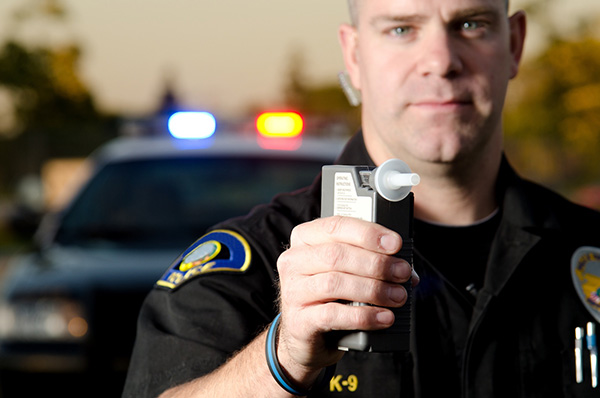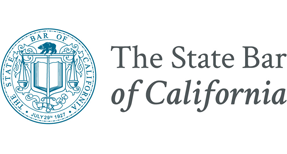This can be a big mistake as the penalties in California are harsher than in some other states.
California DUI laws can have far-reaching consequences that affect your future employment, finances, housing, and freedoms long after you are stopped and charged.
Law enforcement officers and the equipment they use are prone to error. You have a chance of escaping the harsh penalties, no matter the weight of evidence against you.
Many cases that seem straightforward can turn out to be complicated and hinge on technicalities.
Familiarizing yourself with California DUI laws can help you prepare for what is ahead if you are charged with DUI.
Remember, everyone has the right to a defense and you are innocent until proven guilty.
What do you need to know about California DUI Laws?
California DUI laws are summarized in CA Vehicle Code § 23152, which states the following:
(a) It is unlawful for a person who is under the influence of any alcoholic beverage to drive a vehicle.
(b) It is unlawful for a person who has 0.08 percent or more, by weight, of alcohol in his or her blood to drive a vehicle.
The vehicle code goes on to outline definitions and penalties associated with the crime of driving under the influence.
DMV Hearings
The first thing to understand about California DUI laws is that the criminal laws are completely separate from the DMV hearings.
DMV Hearings decide license suspensions and other driving-related matters.
DUI Laws
As outlined above, there are two separate DUI-related crimes in California. If you are stopped and your Blood Alcohol Content or Concentration (BAC) is found to be at 0.08 or above, you will generally be charged by law enforcement officers with two crimes (unless both crimes are linked to the same incident).
The DUI laws apply to the operation of any vehicle, including automobiles, motorcycles, and bicycles. The vehicle does not necessarily have to be moving for a DUI charge to be filed.
Most commonly in California, people are charged with DUI in the course of traffic stops or checkpoints.
Regardless of how you are stopped, law enforcement officers must adhere to a set of procedures to make a valid DUI arrest.
To be convicted of a DUI charge, the prosecution will need to prove two basic elements beyond a reasonable doubt in any DUI case:
You were driving
An officer does not necessarily have to see you driving to establish reasonable suspicion or probable cause that you were driving under the influence.
If the car is parked with keys in the ignition and you appear to be intoxicated, the officer may infer that you were driving under the influence. This could lead to an arrest and subsequent charge for a DUI offense. It is important not to admit to driving or answer any questions that could lead the officer to believe you were driving.
Your BAC reading was .08% or higher or you were under the influence of alcohol or drugs
Before an officer stops you, he or she must have objectively reasonable suspicion or probable cause, derived from personal knowledge or evidence elsewhere that a crime is being committed.
The police officer must observe and make a judgment on whether you were above the permitted BAC limit and then gather evidence to back up the observation.
What are the most common types of tests?
If you are stopped by a police officer who suspects you of driving under the influence, he or she can request you to perform several tests to check your condition including the alcohol content in your blood or breath.
First, you may be asked to complete field sobriety tests (FSTs). These “FSTs” are a series of simple tests (such as walking in a straight line and touching your nose) that help the officer determine whether you have been drinking.
A Preliminary Alcohol Screening (PAS) test is the other most common type of test used in the field. It is considered a “preliminary” test. You blow into a breathalyzer unit, which detects the amount of alcohol contained in your breath. Anyone over the age of 21 is legally entitled to refuse these preliminary tests prior to being arrested.
However, other chemical tests like breath, blood, and urine tests may be performed at the police station after your arrest to ascertain drug or alcohol usage. These tests are mandatory and refusal to take them may lead to mandatory jail time, an extended driver’s license suspension, and other additional penalties.
Remember that your BAC level can be established by any of the above-mentioned tests.
What are the DUI penalties in California?
DUI consequences in California vary depending on:
- Whether you have any prior DUI convictions, and
- Whether anyone was injured or killed
Even a misdemeanor charge can mean a lifelong criminal record.
If you have multiple DUI convictions within a 10-year “look-back” period or your driving results in the injury or death of another person, you may face a felony charge with more severe penalties.
What are the penalties for DUI in California?
1st DUI offense (misdemeanor) |
2nd DUI offense (misdemeanor) |
3rd DUI offense (misdemeanor) |
|---|---|---|
|
|
|
DUI offense with injury (misdemeanor) |
DUI offense with injury or death (felony DUI) |
|
|---|---|---|
|
|
Common mistakes to avoid with DUI
When you are stopped by a law enforcement officer on suspicion of DUI, any visible signs of intoxication will be used as evidence against you.
Do not make arresting you easier for the officer with these common mistakes:
- Being rude or adversarial to the officer
- Speaking ambiguously (answer “yes” or “no” questions so that your answer can only be interpreted one way)
- Admitting that you have been drinking
- Talking too much
You can refuse a roadside breathalyzer if it is a Preliminary Alcohol Screening device, but do not make the mistake of refusing breath, blood, or urine samples if you are taken to the police station.
You have a choice of providing a breath or blood sample but you must comply with a request for a chemical test.
Note, some police agencies use a mobile evidentiary breathalyzer unit that can be administered in the field. If asked in the field and you refuse this you must then submit to a blood test at the station.
Been charged with a DUI in California?
Many times, DUIs are honest mistakes. Unfortunately, most people believe that after drinking a beer or two, they are under the legal limit of 0.08 and can lawfully drive.
This is a dangerous mistake to make as you have seen the severe potential consequences.
With an experienced DUI attorney who is familiar with the legal system in California, you have a chance of escaping a conviction. Our lawyers have defended very challenging DUI charges.
FAQs about DUI in California
Resist the temptation to say anything to police officers after you are arrested – and do not admit guilt. You have a Constitutional Right to remain silent.
Ask to speak to your lawyer as soon as possible and we will guide you through the next steps.
If you are arrested for a DUI in California, there are DMV penalties to face as well as criminal – even if you are not convicted of an offense.
You may receive a temporary driver’s license if your official driver’s license is confiscated. If you do not take action within 10 days of your arrest, the DMV will automatically suspend your driving privilege.
An experienced DUI attorney can help preserve your driving privileges by requesting a hearing with the DMV to make a final decision about your license suspension.
This will mean an automatic stay of your license suspension until the DMV hearing. The DMV does not wait for criminal proceedings to go through the courts.
Both a misdemeanor and felony DUI may result in jail time but it is not always mandatory. An experienced DUI attorney will have methods to work out a deal so that jail time can be avoided in most cases.
The potential for jail time increases with each conviction – especially within the 10-year “look-back” period – and if there are aggravating factors present, such as:
- A blood alcohol content of 0.15 % or higher
- Refusing a chemical test
- Causing an accident
- Excessive speeding
- Underage children inside the vehicle
- Under 21-year-old driver
The likelihood of you spending time in jail for DUI also depends on the skills of your defense lawyer when negotiating with the prosecution.
DUI is generally treated as a misdemeanor offense in California unless one of the following applies:
- The DUI is a fourth offense within 10 years
- The driver has a prior felony charge for DUI
- The driver causes an accident in which another person is injured or killed
In the above instances, a felony charge may apply.
Since 2019, people charged with DUI in California have been able to continue driving if they successfully apply for a restricted license after 30 days of suspension.
You may also have the option to install an IID (Ignition Interlock Device) and suffer minimal license suspension time.
While there is no guarantee that your application will be accepted, your attorney may be able to help you partially restore your driving privileges.
If you have been convicted of DUI in California, there is a chance that it can be removed from your criminal record after a certain period.
However, without taking active steps with your lawyer to expunge a DUI, it will remain on your criminal record forever.
Generally speaking, the DUI will remain on your driving record for 10 years as well. However, this record is not visible to potential landlords and employers.
For a first DUI in California, you may receive a driver’s license suspension from four to 10 months. However, this is not a foregone conclusion.
With the help of your lawyer, you may be able to fight the license suspension and retain your driving privileges.
Your lawyer can first help arrange a DMV hearing within 10 days of your arrest and then fight against a DUI conviction in court (a conviction automatically triggers a six-month license suspension).








